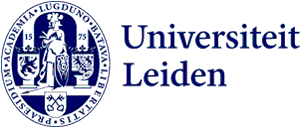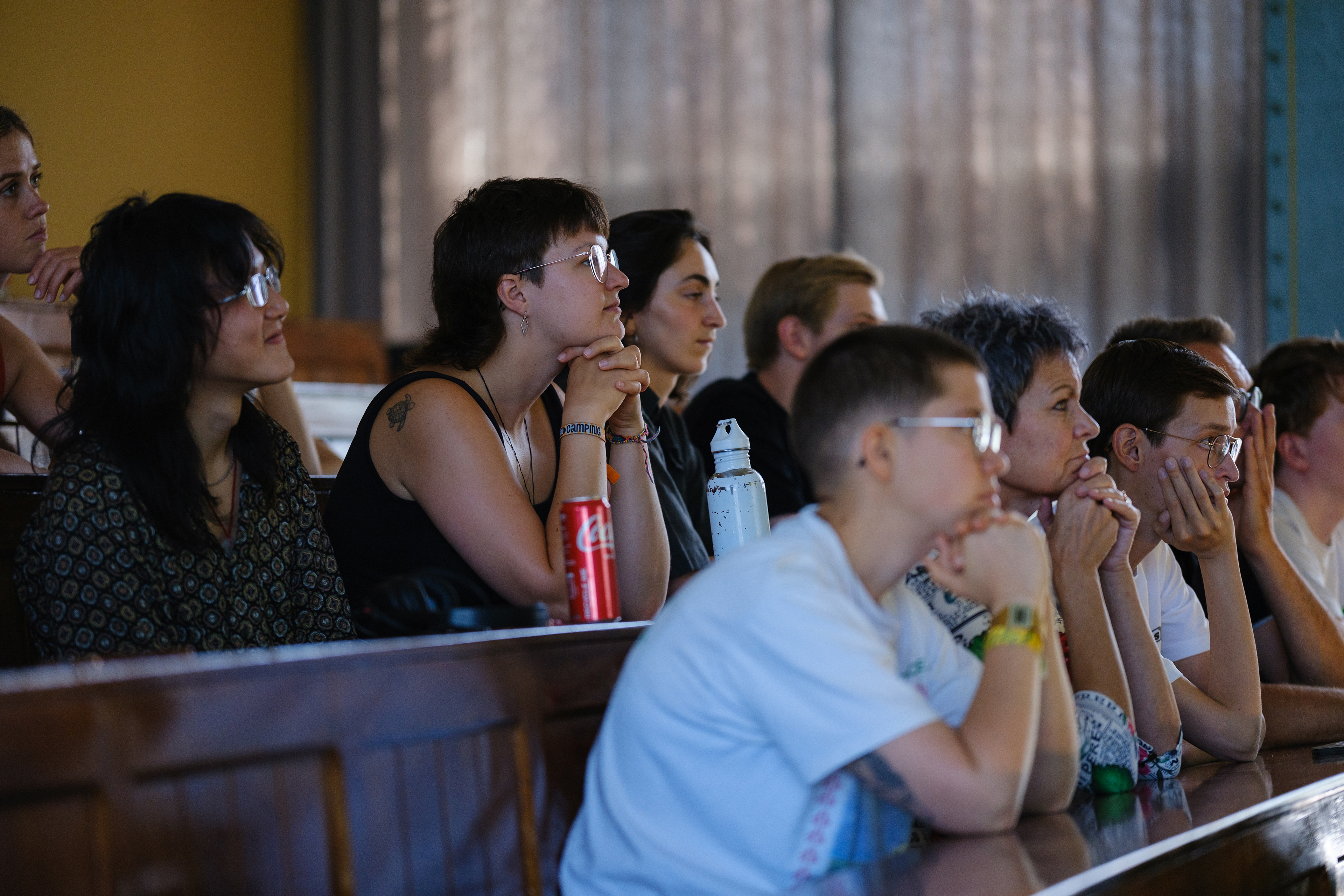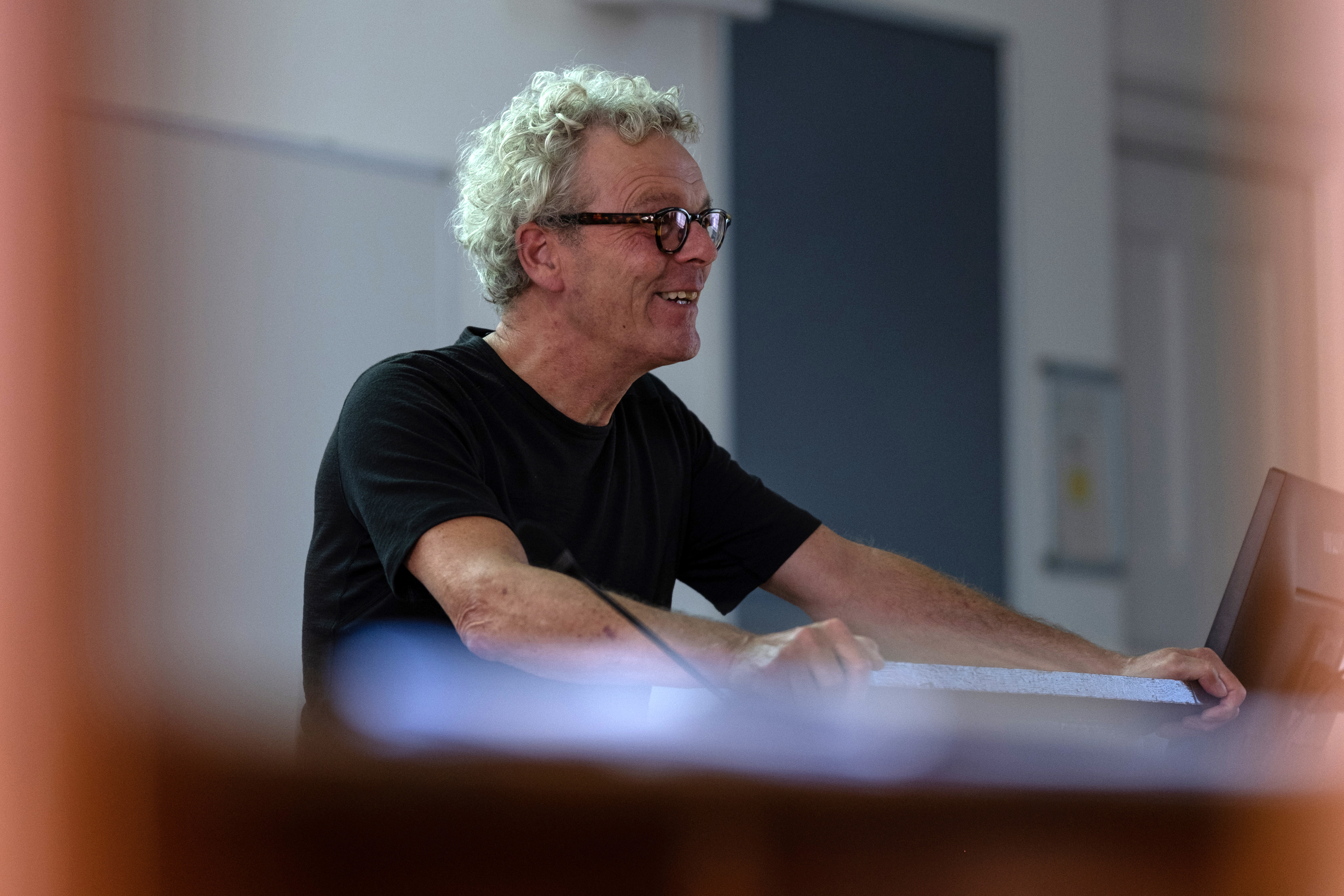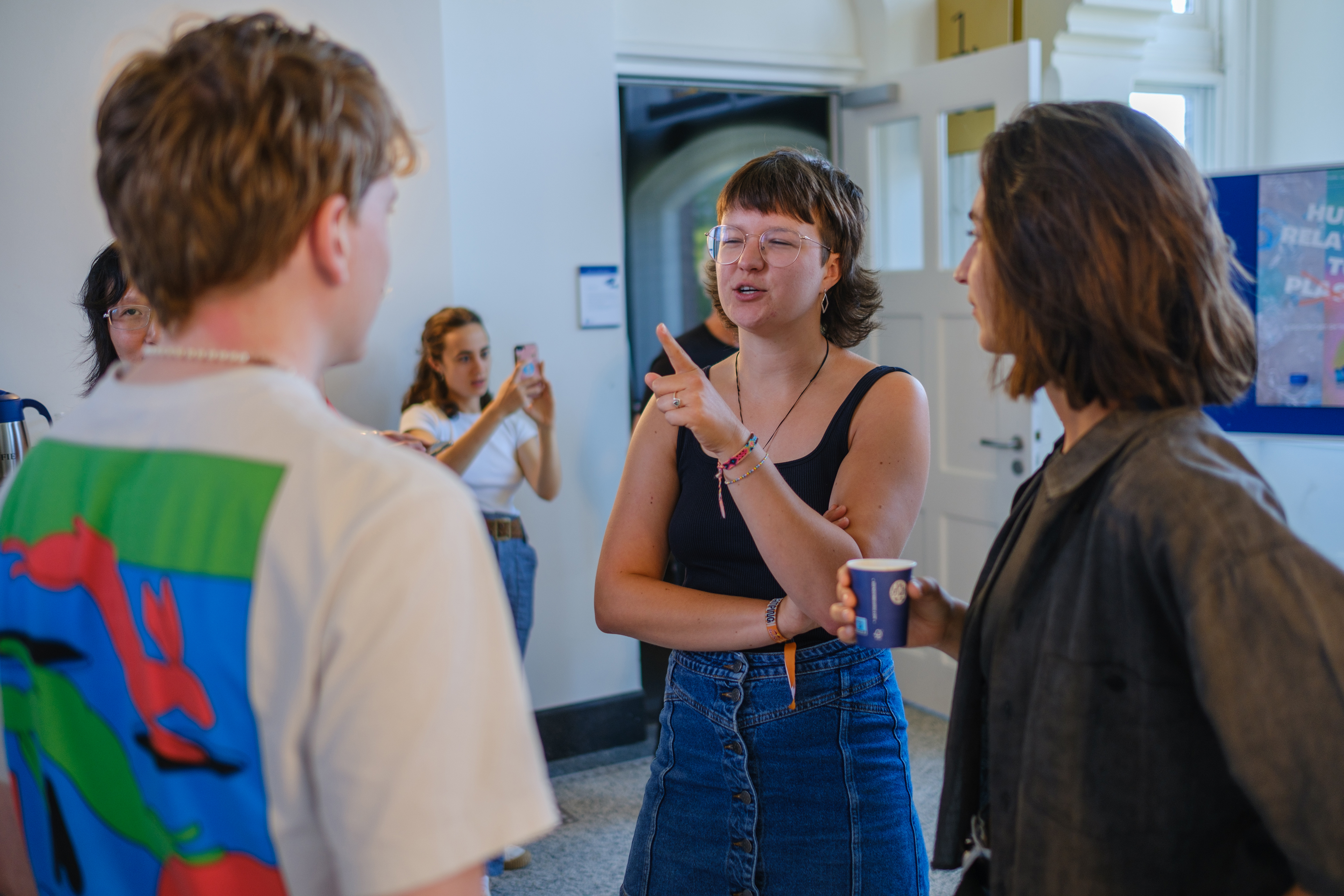
Planet in Peril: the relationship between mankind and the planet
What is the relationship between humans and nature like? And how can we use it to tackle climate problems? In the Master Honours Class ‘Planet in Peril’, students approach climate issues from the perspective of the humanities. ‘Things are not always as one-sided as they seem.’
The course started with guest lectures, accompanied by discussions and presentations on four themes: biodiversity, waste, climate change and the future. Course coordinator Dr. Jan Sleutels: “The selection of lecturers was partly based on how outspoken their ideas were. The second lecture, for example, was given by Bas Haring, who takes on the somewhat contentious position that loss of biodiversity is not such a disaster. This contradicts what many students think, and that is good! Start a conversation, start a discussion.”
Different perspectives
As their final assignment, the students made documentaries about the four themes. In ‘The Country That Cried Wolf’ on biodiversity, the return of the wolf in the Netherlands was discussed from a broad spectrum of perspectives. Although biologist Krijn Trimbos (Leiden University) is reserved about the impact of the wolf on Dutch ecosystems, for example, forest ranger Frank Theunnissen (Natuurmonumenten Veluwe) is very enthusiastic: “There is nothing better for an ecosystem than the return of a top predator.” Although the eventual consensus appears to be that the wolf is here to stay, strongly negative opinions, such as that of senate member Eric Kemperman (BBB), are not avoided.
Intergenerational justice
Sleutels: “What strikes me the most is that all four groups had very different documentaries and, above all, different narrative styles.” For example, the film about the future had a very ironic take on the concept of intergenerational justice, the idea of justice for everyone, including future generations. “Should we care about generations that don’t exist yet? That they don’t exist means they don’t have any rights, right? And if we do care about them, how far do we think ahead? Up to the next generation, or to ten thousand years from now?”
'How we can introduce measures that not only are impactful, but also feel that way?'
Practical focus
The documentaries about climate change and waste had a more practical focus. The first was about the Sustainable Development Goals (SDGs), which hardly any Dutch citizens seem to know about.
The second was about the recycling of plastic. Consumers, producers and government constantly seem to be pointing fingers at each other. “Some people get angry when municipalities do not collect waste separately, because it is a solution with which people really feel involved,” explains a professor in the documentary. “But municipalities don’t do it because it is much more efficient to separate waste post-collection.” The film addresses the question how we can introduce measures that not only are impactful, but also feel that way.
-
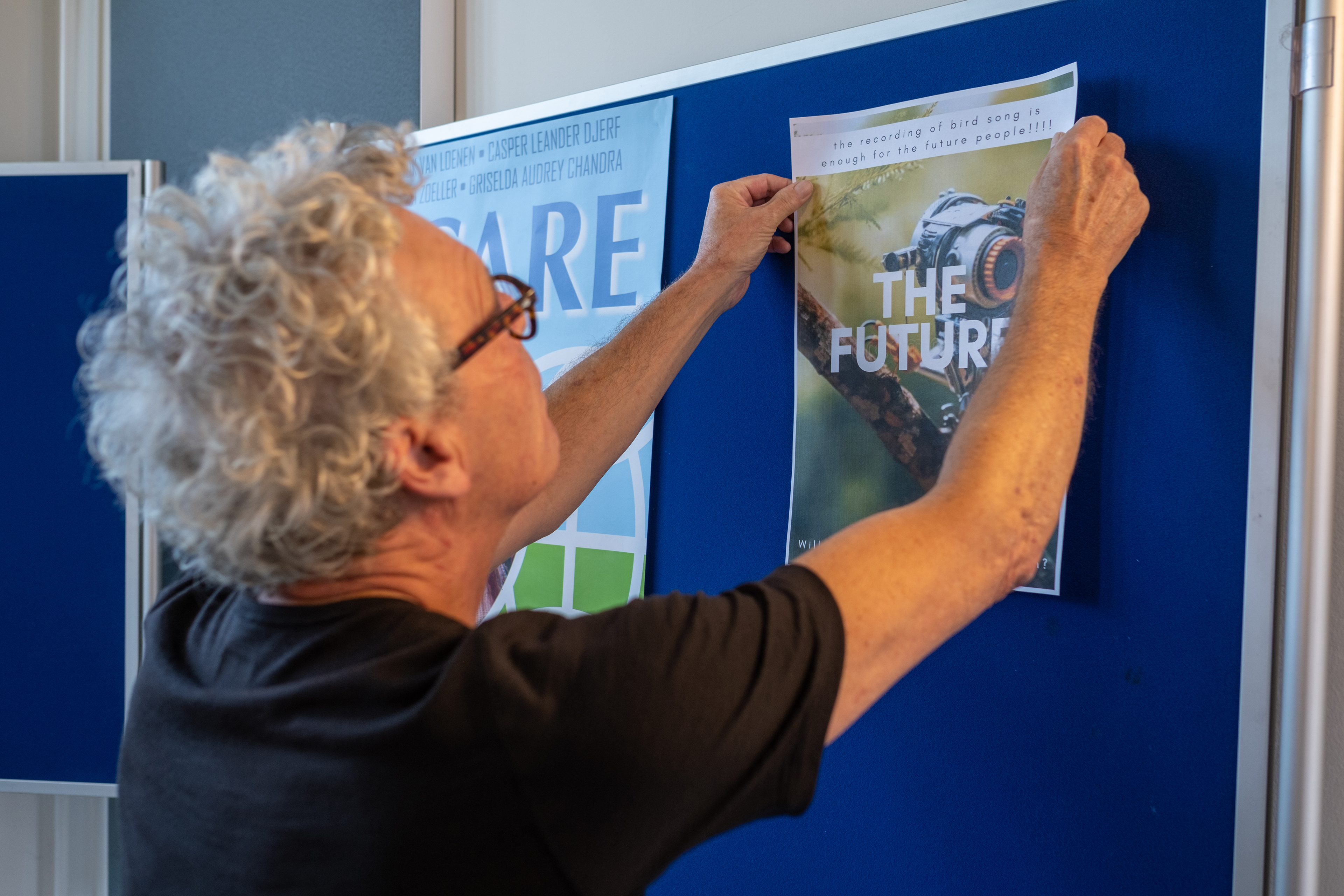
The posters students made about their documentaries (click on magnifying glass for full view). -
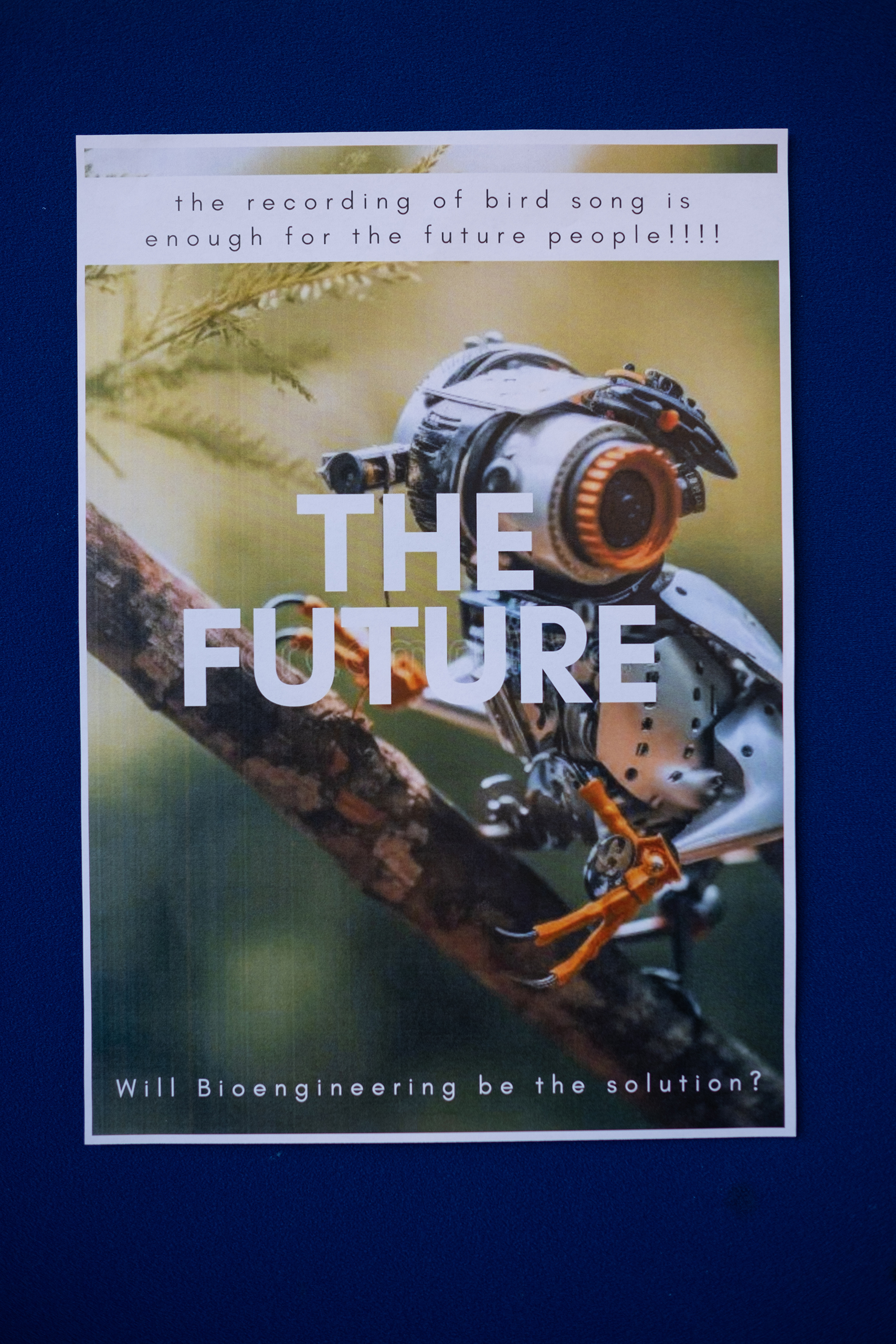
The posters students made about their documentaries (click on magnifying glass for full view). -
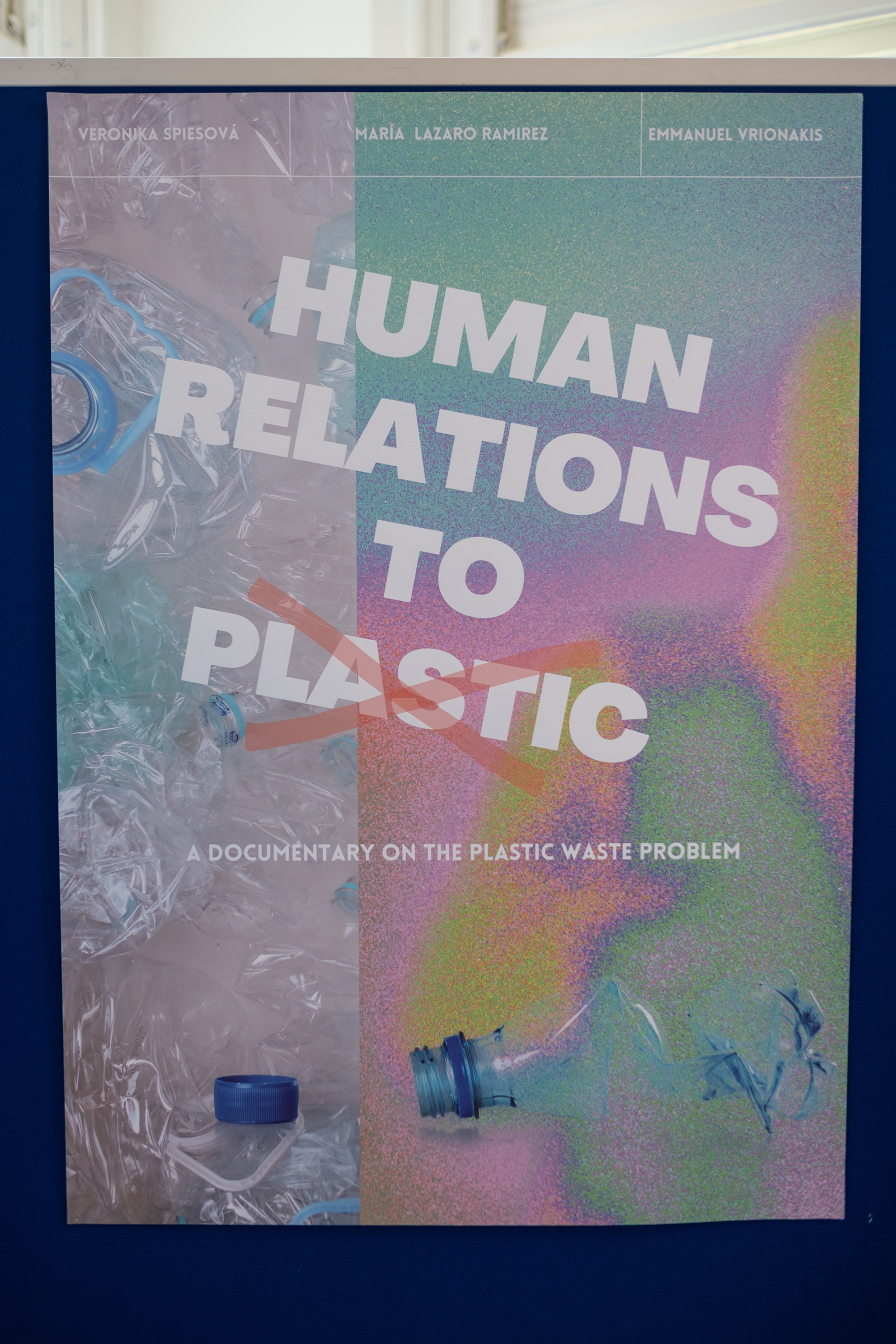
The posters students made about their documentaries (click on magnifying glass for full view). -

The posters students made about their documentaries (click on magnifying glass for full view). -
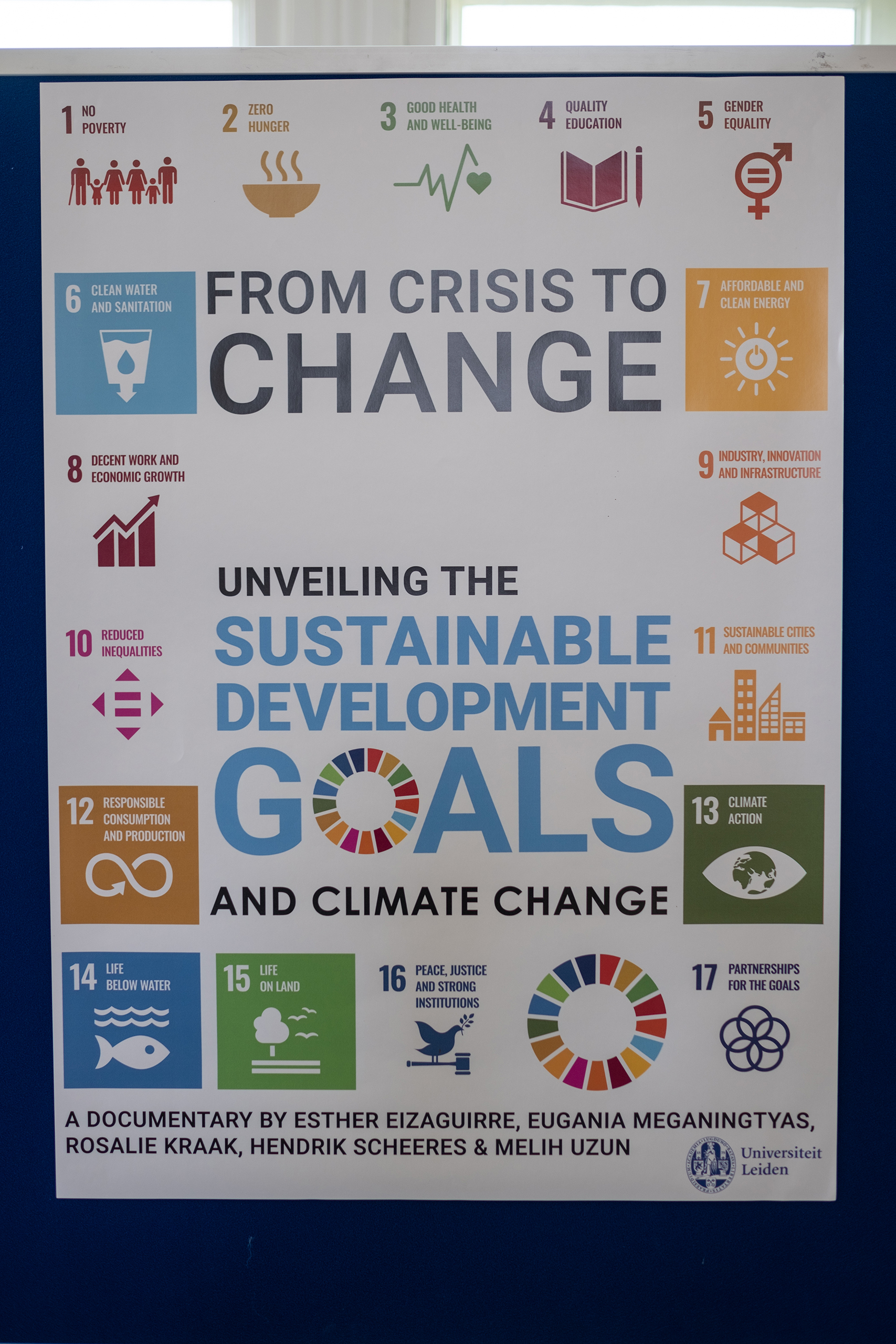
The posters students made about their documentaries (click on magnifying glass for full view).
Not as one-sided as they seem
Student Veronika Spiesová (24, Clinical Psychology) was pleasantly surprised by the Honours Class: “Because it was a course about sustainability, I expected a strong focus on biology, but we mainly approached things from the viewpoint of the humanities. While I probably won't be working on sustainability in my career, I have learned a lot on a personal level. I look at things more realistically and I understand that things are not always as one-sided as they seem. For example, we cannot suddenly stop using fossil fuels. We do not yet have enough of the right resources to completely abandon them.”
Emmanuel Vrionakis (24) is planning to work in sustainable chemistry after getting his master’s degree. “I think what’s really interesting about our documentaries is that we really emphasised the human relations with the problem. Instead of merely looking at solutions, we really focused on how people feel about sustainability problems, how they behave, and how that relates to those solutions.”
Text: Merijn Mulder
Photos: Eric van den Bandt
